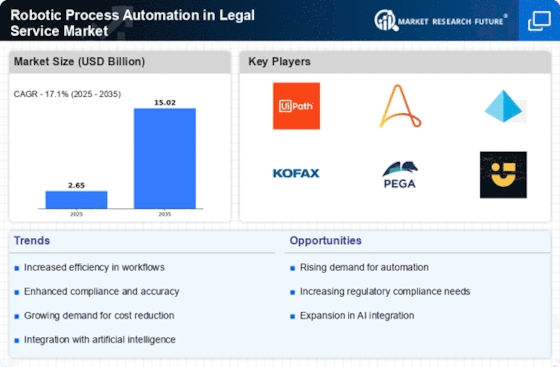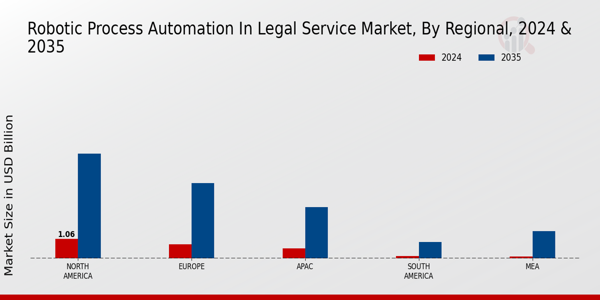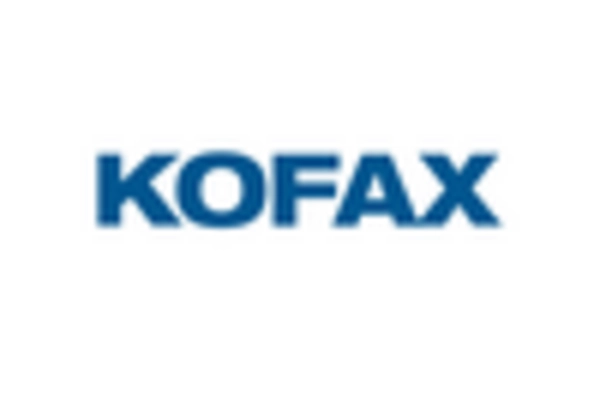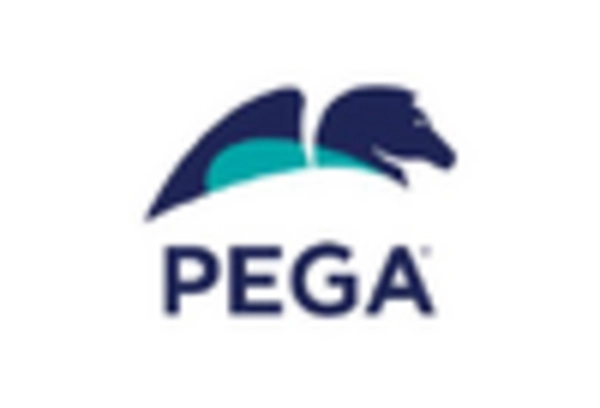Scalability of Legal Operations
The scalability of legal operations is a significant driver in the Robotic Process Automation in Legal Service Market. As legal firms expand their operations, the ability to scale processes efficiently becomes paramount. RPA enables firms to automate high-volume tasks, such as document generation and data entry, allowing them to manage increased workloads without a proportional increase in resources. This scalability is particularly beneficial for firms looking to enter new markets or expand service offerings. Recent studies indicate that firms leveraging RPA can scale their operations by up to 40% more efficiently than those relying solely on traditional methods. This capability positions RPA as a vital component in the strategic growth of legal services.
Integration with Advanced Technologies
The integration of Robotic Process Automation with advanced technologies is a notable driver in the Robotic Process Automation in Legal Service Market. As legal firms seek to enhance their operational capabilities, the convergence of RPA with artificial intelligence and machine learning presents new opportunities. This integration allows for more sophisticated automation solutions that can handle complex tasks, such as predictive analytics and natural language processing. Firms that adopt these integrated solutions can improve their decision-making processes and operational efficiency. Current trends indicate that the market for RPA combined with AI in legal services is expected to grow significantly, suggesting that this synergy will be a key factor in the evolution of legal service delivery.
Enhanced Compliance and Risk Management
The Robotic Process Automation in Legal Service Market is increasingly driven by the need for enhanced compliance and risk management. Legal firms face stringent regulations and compliance requirements, necessitating the automation of routine tasks to minimize human error. RPA solutions can streamline processes such as document review and regulatory reporting, ensuring adherence to legal standards. According to recent data, firms utilizing RPA have reported a 30% reduction in compliance-related errors, which underscores the technology's potential to mitigate risks. As legal professionals seek to navigate complex regulatory landscapes, the demand for RPA solutions that enhance compliance is likely to grow, positioning these technologies as essential tools in the legal sector.
Improved Client Service and Satisfaction
In the Robotic Process Automation in Legal Service Market, improving client service and satisfaction emerges as a crucial driver. Legal firms are increasingly adopting RPA to enhance their responsiveness and service delivery. By automating repetitive tasks such as client onboarding and case management, firms can allocate more time to strategic client interactions. Data indicates that firms implementing RPA have experienced a 25% increase in client satisfaction scores, as clients benefit from faster response times and more accurate information. This shift towards client-centric service models suggests that RPA will play a pivotal role in transforming how legal services are delivered, ultimately fostering stronger client relationships.
Cost Efficiency and Resource Optimization
Cost efficiency and resource optimization are pivotal drivers in the Robotic Process Automation in Legal Service Market. Legal firms are under constant pressure to reduce operational costs while maintaining high service quality. RPA solutions facilitate this by automating mundane tasks, thereby freeing up legal professionals to focus on higher-value activities. Data suggests that firms implementing RPA can achieve cost savings of approximately 20-30% in operational expenses. This financial incentive, coupled with the potential for improved productivity, makes RPA an attractive option for legal firms aiming to optimize their resource allocation. As the competitive landscape intensifies, the drive for cost efficiency will likely propel further adoption of RPA technologies.


















Leave a Comment